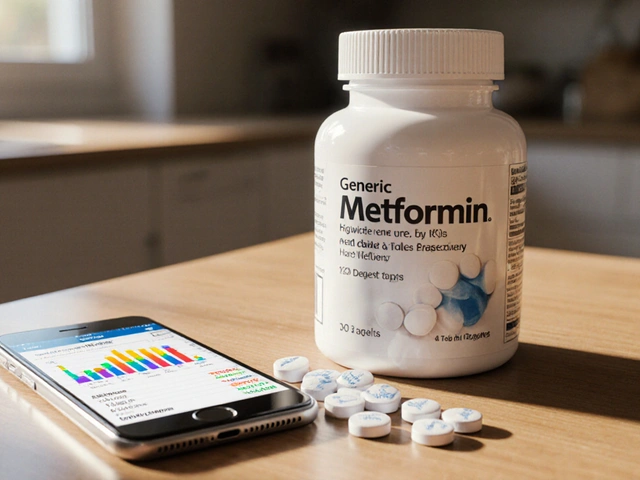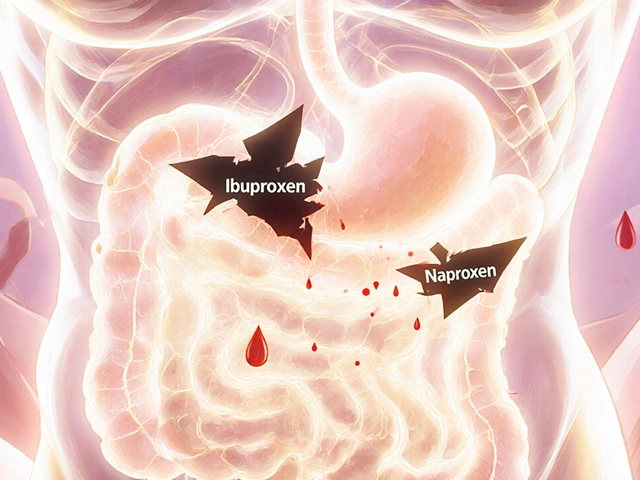Antidepressants: What to know, when to switch, and how to stay safe
Feeling unsure about an antidepressant? You’re not alone. Antidepressants work, but they vary a lot in how they feel, how fast they help, and what side effects pop up. This page pulls together clear, practical tips and links to our deep-dive posts so you can make smarter choices with your prescriber.
Common types and what they do
Most doctors prescribe one of a few families: SSRIs (like fluoxetine/Prozac, sertraline/Zoloft) ease anxiety and depression with fewer side effects for many people. SNRIs (for example duloxetine/Cymbalta) help mood and some types of pain. Bupropion (Wellbutrin) acts differently — it can boost energy and rarely hurts sexual function. Older classes like tricyclics or MAOIs still work for certain cases but need closer monitoring.
Expect 4–8 weeks to see full benefit. Early on you might notice sleep changes, nausea, jitteriness, or changes in appetite. Sexual side effects and weight changes are common reasons people consider switching or trying alternatives.
Thinking about switching or trying alternatives?
Switching meds is common. Two good starting steps: talk with your prescriber about specific problems (side effects, not enough effect, interaction with other drugs) and make a clear plan for tapering or cross-tapering. Don’t stop suddenly—some drugs cause withdrawal-like symptoms.
If Duloxetine isn’t helping or causes bad side effects, our article "7 Alternatives to Duloxetine for Managing Pain and Anxiety" outlines practical options and what to expect from each. If Wellbutrin Sr isn’t a fit, read "8 Alternatives to Wellbutrin Sr" for other choices that may match your symptoms better.
Quick tips when considering a switch:
- Document exactly what’s not working (sleep, sex, energy, pain relief).
- Ask about drug interactions — MAOI rules and serotonin syndrome matter.
- Plan a gradual change with your clinician and schedule follow-ups.
- Combine meds with therapy, sleep, and activity for better results.
Also, medication isn’t just for mood. Some antidepressants are used for nerve pain or fibromyalgia — that’s why your prescriber needs to match drug to symptom, not just diagnosis.
Want reliable reading? Check these related pages on MedsEngage: "7 Alternatives to Duloxetine for Managing Pain and Anxiety," "8 Alternatives to Wellbutrin Sr," and our practical posts on safe online pharmacies and switching meds. If you’re buying medication online, always use a licensed pharmacy, require a prescription, verify contact details, and avoid vendors that pressure you to skip your prescriber.
If something feels off after a change, contact your clinician right away. Small adjustments often fix problems fast, and you don’t have to settle for side effects that interfere with your life.
Celexa: Clear Answers About Citalopram, Depression, and Side Effects
Celexa—also called citalopram—is a common antidepressant used to treat depression and anxiety. This article unpacks exactly how Celexa works, who might benefit, what side effects you might run into, and practical tips for living well while on it. You’ll find real data, easy-to-understand explanations, and guidance to ease your mind about starting or continuing Celexa. Whether you’re curious, worried, or just want the facts, this deep dive offers honest clarity.
6 Alternatives in 2025 to Paroxetine: Your Guide to Better Choices
Navigating mental health meds in 2025 means knowing your options. Paroxetine is still around, but lots of people want something different: fewer side effects, less risk for weight gain, or a different way the medication works. This guide breaks down six real-world alternatives to Paroxetine, sharing what each one is good for, their possible drawbacks, and insider tips for talking with your doctor. If you’re looking for practical advice, clear comparisons, and honest pros and cons, you’re in the right place.
About
Health and Wellness, Medications
Latest Posts


Nocebo Effect and Statin Side Effects: How Expectations Shape Your Experience
By Marcel Kornblum Jan 15, 2026

Buy Cheap Generic Glucophage Online - Safe 2025 Guide
By Marcel Kornblum Oct 6, 2025

Radiation Therapy: How Radiation Destroys Cancer Cells at the DNA Level
By Marcel Kornblum Jan 5, 2026


